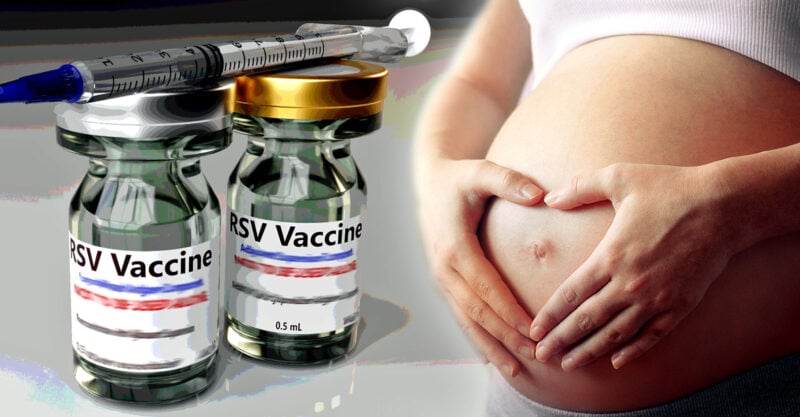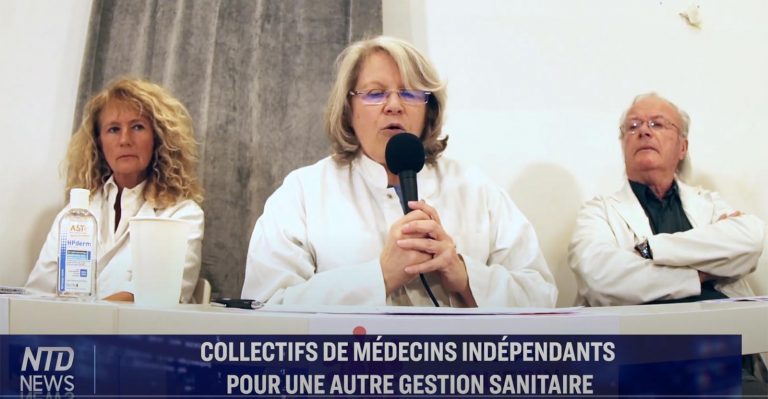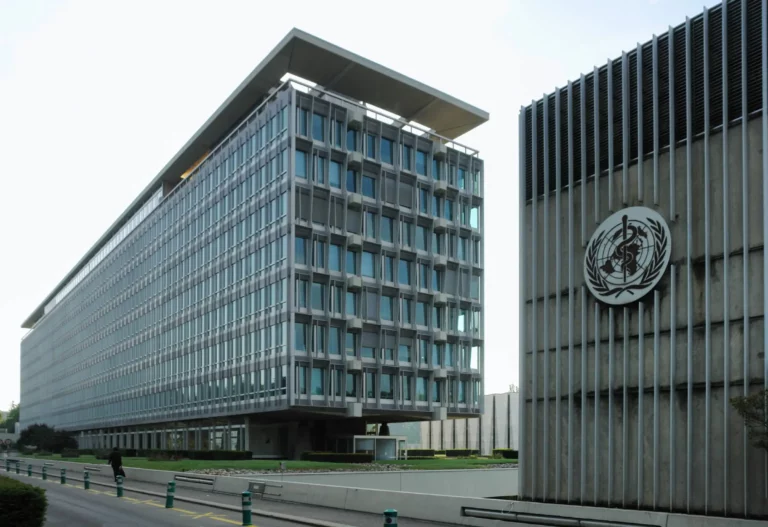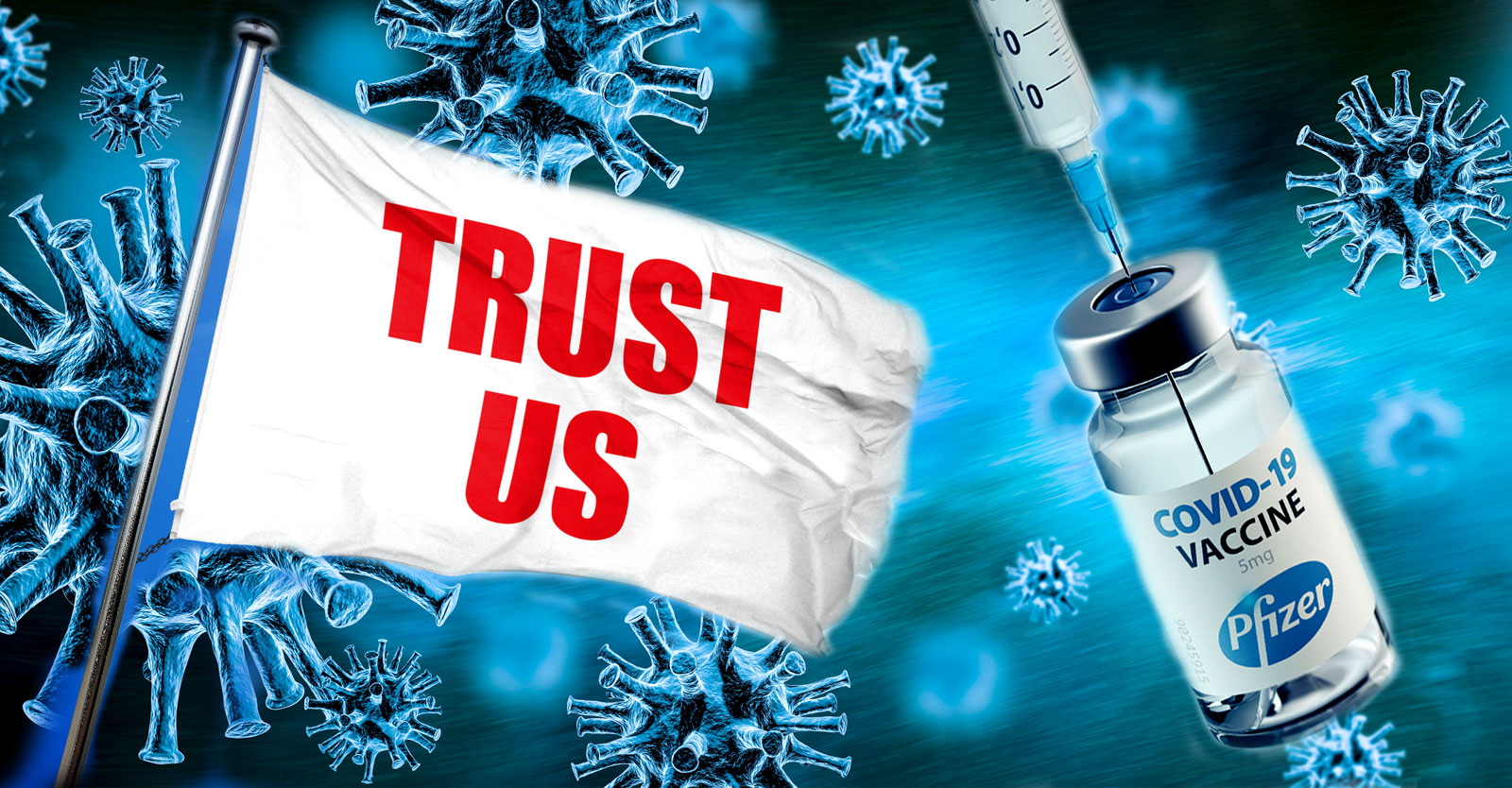GSK and Pfizer RSV Vaccines for Pregnant Women Increased Risk of Preterm Births — GSK Ended Its Trials, but FDA Approved Pfizer Shots
GSK stopped developing a vaccine for pregnant women to protect newborns against syncytial virus (RSV) after identifying an increased risk of preterm births. Pfizer won approval of its nearly identical vaccine after the company said the increased rate of preterm births in its trials was statistically insignificant.
GSK on Thursday provided more details on the clinical trials for its maternal respiratory syncytial virus (RSV) vaccine. The company halted the trials and stopped developing the vaccine in February 2022, after identifying an increased risk of preterm birth among vaccinated mothers.
The details, published in a peer-reviewed article in the New England Journal of Medicine (NEJM), came after GSK previously reported the increased risk and subsequent termination of the trials to regulators, GSK’s investors and in the press.
According to the NEJM article, GSK was unable to identify a mechanism by which the vaccine caused the preterm births. However, the company also couldn’t identify any causes other than the vaccine being investigated.
Although GSK ended its trials due to the preterm birth safety signal, the U.S. Food and Drug Administration (FDA) in 2023 approved Pfizer’s RSV vaccine for pregnant women, — even though Pfizer also reported elevated rates of preterm birth among vaccinated women during clinical trials for the vaccine, Abrysvo.
Pfizer said the rates of preterm birth during the Abrysvo trials were not statistically significant. However, the FDA limited approval of the vaccine for women in weeks 32-36 of their pregnancy.
The authors of an editorial that accompanied the NEJM article noted that although Pfizer’s FDA-approved maternal RSV vaccine is bivalent and GSK’s RSVPreF3-Mat is monovalent, “the vaccines are otherwise similar.”
They also argued that RSV “poses a substantial burden” to infant health and that in considering maternal vaccination, risks and benefits had to be carefully weighed.
Dr. David Healy, a drug safety expert, told The Defender he didn’t think most people were aware of how serious premature birth is for both infants and mothers.
Healy said:
“It leads to having a shorter lifespan, hypertension, ischemic heart disease, types 1 and 2 diabetes, lipid disorders and chronic kidney disease. Any mother who does her research — and women who give birth do more research than any other group of people on the planet — is going to find this out and be very worried.”
Healy said in addition to the risks to the baby, “The vaccine also increases risks to the mother — there is an increased hypertension risk on [the GSK] and Pfizer’s identical vaccine [Abrysvo],” he said.
“Increased hypertension in pregnancy, especially preeclampsia, has long-term health consequences for the mother — rather like the preterm birth issues for her infant,” Healy added.
RSV is a common respiratory virus that usually causes mild cold-like symptoms but in rare cases can lead to hospitalization and death in infants and the elderly. By the age of 2, 97% of all babies have been infected with the RSV virus, which confers partial immunity, making any subsequent episodes less severe.
Midwife and nurse practitioner Mary Lou Singleton told The Defender:
“As a mother and a pediatric primary care provider, I have had many frightening experiences with RSV. Every few years the virus moves through the children of my town, and in these bad RSV years at least a few of the infants and young children in my practice are hospitalized with severe cases of RSV. I am not cavalier about RSV.
“Prematurity carries greater short and long term risks to children than RSV.”
Singleton said that being born between 32 and 36.5 weeks gestation has lifelong negative effects. These babies are significantly more likely to die in the first year of life from all-cause mortality — “including RSV, for which they will only be partially protected according to the results of the study on the vaccine,” she said.
Preterm babies also are more likely to have learning disabilities and behavioral disorders, which affect not only their quality of life but also the lives of their family members and the lives of everyone who interacts with them, Singleton said.
“As they age, they are more likely to develop heart disease, diabetes and high blood pressure than people who were born at term.”
Risk of preterm birth in GSK trials 37% higher among vaccinated mothers
GSK launched a Phase 3 clinical trial in November 2020 to test the safety and efficacy of its vaccine against lower respiratory tract disease associated with RSV in infants born to women who had received the vaccine during pregnancy.
The company initially planned to enroll 10,000 pregnant women in the trials. However, after enrolling only 5,328 women and 5,233 infants by February 2022, the company stopped the trials because monitors detected an increase in preterm births.
In the study overall, researchers reported that 6.8% of infants among the vaccinated women were born preterm, as compared with 4.9% of those in the placebo group.
In other words, for every 54 infants born to women who received the vaccine, one additional preterm birth occurred.
The trial was conducted at sites in 24 countries on six continents, with approximately 50% of women located in middle- and low-income countries, where 97% of RSV-attributable deaths occur.
Researchers randomly assigned mothers in a 2:1 ratio to receive either the vaccine or a placebo between 24-34 weeks of gestation. They then tracked 3,426 infants whose mothers received the vaccine and 1,711 infants whose mothers received the placebo until they were 6 months old.
In February 2022, an independent data monitoring committee reported to GSK that at that time it identified there were 7.6% of preterm births in the vaccinated group were born preterm versus 5% in the placebo group.
The “imbalance” identified between the two groups continued after all mothers had delivered their babies. By the end of the trial, 237 of the 3,494 infants in the vaccine group (6.8%) were born before 37 weeks, compared with 86 of 1,739 (4.9%) in the placebo group.
That translated into a 37% increased risk of preterm births among vaccinated women.
Among the infants born prematurely, very preterm births (between 28 and 32 weeks) or extremely preterm births (before 28 weeks) occurred in 5.5% of the vaccine group and 2.3% in the placebo group.
Neonatal deaths also were higher in the vaccine group, occurring in 0.4% of the infants in the vaccine group (13 of 3,494) and 0.2% in the placebo group (3 of 1,739), which they also noted was not statistically significant.
“The use of statistical significance here to discount the existence of a problem is statistically illiterate. There is a very clear increase in risk that should not be discounted in this manner,” Healy said.
He added:
“In the GSK trial, 1 in 54 vaccinated babies were likely to have a preterm birth compared with not being vaccinated and even in these small trials there were neonatal deaths linked to the vaccine.
“In contrast, there were no deaths linked to RSV. And we don’t have any indications that getting RSV as an infant has long-term health consequences — any problems there are more likely linked to another underlying condition the child had prior to the RSV.
“There might be a link to asthma but even this is dubious. The key point is 166 children have to be vaccinated to prevent one severe RSV infection.
“Let me put it like this — forget the 69% efficacy this vaccine has only 0.5% efficacy in absolute terms.”
Another ‘risky gamble’ with the health of pregnant women?
The editorial commentary accompanying the NEJM article was written by Dr. Sonja A. Rasmussen and Dr. Denise J. Jamieson, who was named earlier this month to the CDC’s vaccine advisory committee and was a key spokesperson promoting the COVID-19 vaccines as “safe and effective” for pregnant women.
Noting the researchers in the GSK trial could not identify the mechanism of increased risk of preterm births, Rasmussen and Jamieson walked through a series of potential explanations unrelated to the vaccine itself that could cause the higher rates of preterm births in the vaccine arm of the study.
Preterm births primarily occurred in low- and middle-income countries, they wrote. The study was carried out during COVID-19, and ultrasounds during the first trimester to determine fetal age were not done in nearly half the cases.
However, they then also conceded that there was no relationship to COVID-19 infections identified and misclassification of gestational age would have occurred at the same rate in both groups.
They concluded that “whether the safety signal in the RSVPreF3-Mat trial is real or occurred by chance is unknown.” Still, they conceded that the results were concerning enough to warrant postmarketing surveillance of the bivalent vaccine — which is Abrysvo, currently approved and marketed by Pfizer.
They suggested that even if there does turn out to be a link between the bivalent (Pfizer’s) vaccine and preterm births, “it is essential to weigh this small risk against the proven benefits of maternal RSV vaccination.”
Healy came to a different conclusion, noting that “Based on the Novovax trial, this trial and the Pfizer trial I think any woman who has an RSV vaccine is making a big mistake and has been badly advised.”
“But,” he said, “I think a lot of American women understand this and most are in no rush to get it.”
Singleton said it “would be great if we had a safe and effective way to prevent RSV from ravaging our communities every three to five years. But we don’t.”
Instead, she said, “We have another risky gamble with the health of pregnant women and infants that will further enrich Big Pharma and increase the already abysmally high rate of preterm birth in the United States.”
She said a large percentage of children who get RSV will need to be hospitalized, but “a very small percentage” of children with the virus will die.
Singleton added:
“Even though RSV has me shaking in my boots every few years as I am arranging transport to the hospital for very sick children in my care, I cannot recommend that mothers risk taking this new injectable technology.
“We have no idea the extent of the new problems we may be creating with this new drug, and so far the data shows the risks do not justify the perceived benefit.”
Suggest a correction






